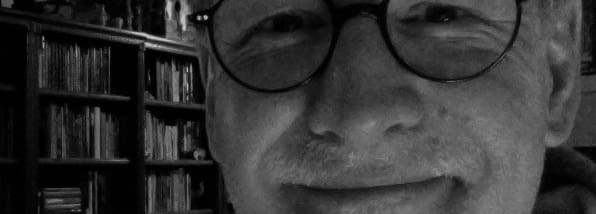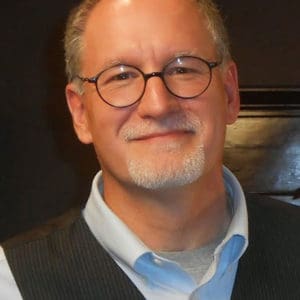Life, As I Find It
My friend Anne called in a state of great agitation about her husband Jack. They had been arguing, she  explained, and now she hoped I might talk to her husband before he succumbed to despair. I was alarmed. I wasn’t sure how I could be of help – I’m not a counselor, nor particularly smart – but said I’d try. What was the argument about? Pope Francis had given yet another interview, she said. “Oh – that,” I said, and laughed. Jack wasn’t laughing. He was apoplectic because the Holy Father had yet again suggested a few things the liberal/progressive Media were in throes of ecstasy about.
explained, and now she hoped I might talk to her husband before he succumbed to despair. I was alarmed. I wasn’t sure how I could be of help – I’m not a counselor, nor particularly smart – but said I’d try. What was the argument about? Pope Francis had given yet another interview, she said. “Oh – that,” I said, and laughed. Jack wasn’t laughing. He was apoplectic because the Holy Father had yet again suggested a few things the liberal/progressive Media were in throes of ecstasy about.
Anne and Jack, along with my wife and I, had journeyed together through the heartbreaking moral morass that the Episcopal Church in the U.S. had become. We watched as the anti-orthodox lobby supplanted orthodox doctrine in the name of tolerance and compassion. We endured all those “times of listening” which the revisionists in the Episcopal church demanded of all orthodox Christians, realizing too late that the “time of listening” was actually code for “you listen until you accept what we’re saying as the truth.” We felt like morons when the proponents of the sexuality du jour said we needed to stop arguing about sex and get back to preaching the Gospel – and when we did, they used the time to forcefully push through their sexual agenda and trigger the domino-effect of theological compromise necessary to accommodate that agenda.
At the time, Anne and Jack began to ask the same questions that I asked: who has the authority to interpret Scripture and establish doctrine? Together, we discussed and debated. We created an “inquiry group” with a sacrificial and knowledgeable Catholic priest who guided us through our questions and concerns. We came to similar conclusions and were received into the Catholic Church around the same time. And, like me, they were determined not to be “cafeteria Catholics,” but wanted to apply themselves totally to the Catholic faith with allegiance to the Magisterium.
I suggested to Jack that, regardless of what the Pope had said or how he had said it or how it was being reported (which may or may not be reliable), the Magisterium still stood. The Pope hadn’t issued a Papal Bull or spoken ex cathedra or actually said anything that changed Catholic doctrine. The Pope seemed to be challenging everyone to rethink how we articulate and apply that doctrine, even modeling how to stir things up.
Jack wasn’t comforted. He argued that the Pope’s words – whether quoted accurately or not – would be used as ammunition by the many progressive/ liberals or weakly catechized Catholics to justify actions and theology at the parish level or at the diocesan level. The Pope was giving fodder to our many Protestant family-members and friends who seized his words to renew their attacks against us. Ultimately, Jack wished the Pope hadn’t spoken at all, or that he had said what he said differently, or had clarified what he said to avoid misunderstanding. This is the sound-bite generation, Jack argued. The ability of people to dig deep to discern the real meaning of the Pope’s words has disappeared. And, for Jack, it was indicative of the vastness of the problem that the internet was filled with bloggers and orthodox Bishops trying to explain what the Pope actually meant. It was like President Obama’s press secretary trying to explain Vice President Biden’s latest off-the-cuff faux pas with the usual “I know he said that, but it’s not what he meant…”
I realized after the call ended that Jack was suffering from a form of Experiential Anxiety. He hears the Pope’s words and has that terrible sense of déjà vu – the fear that we’re about to relive the nightmare we’d had as Episcopalians. It’s the Slippery Slope all over again. We’ve seen this before and we know where it will lead. Or, if nothing else, it simply makes life more difficult for those orthodox Christians who feel as if they’re hanging on by their fingernails in a culture that is aggressively against them.
In a recent speech, comedian Stephen Colbert articulated the view of too many Catholics when he said: “I believe the Pope is infallible. But I also believe he’s wrong about a lot of things.” Orthodox Catholics suspect that’s what liberal/progressive Catholics think, but we’re beginning to feel that way ourselves with every new interview that comes out. Rather than rejoice, we cringe, fearful of what he’s said this time. We worry that if the Pope himself isn’t truly a progressive/liberal, then he’s playing into their agenda.
I believe there are a lot of faithful Catholics suffering from Experiential Anxiety. I know I do. The Holy Father’s impromptu words make me nervous, for all the reasons I’ve mentioned here. They force me to examine my Experiential Anxiety and what’s at the heart of it.
There are a lot of Bible verses about trust, about God’s peace, about not being anxious. I suppose God gives us those verses because He knows we live in a world where trust is often difficult, where peace feels like a luxury item, and where experience teaches us to be anxious. This has happened before, I tell myself, and I know where this will lead. The difference, Catholic history has shown me, is that the foregone conclusions that make me so anxious are not truly foregone nor concluded. There’s an unpredictable factor that sometimes smashes like a brick through our expectations of the future – or it sometimes shapes the future like a gentle stream washing over the hardest rock. That factor is God Himself, working through His Church. Again and again, He saw the Church through times when she rode the line of great faithfulness or moved dangerously near the edge of apostasy. Foregone conclusions – everything experience suggested as an outcome – were undone by Him.
I’m not suggesting it’s easy. It certainly isn’t convenient. But, as I wrestle through the unpredictability of the Holy Father’s words and actions, is it possible to turn my Experiential Anxiety into something else? When I say, this has happened before and I know where this will lead, is it possible to remember Catholic history and believe that experience doesn’t always have to lead to anxiety, but to faith?
So, bring it on, Pope Francis. And may God find me faithful, whatever happens.




